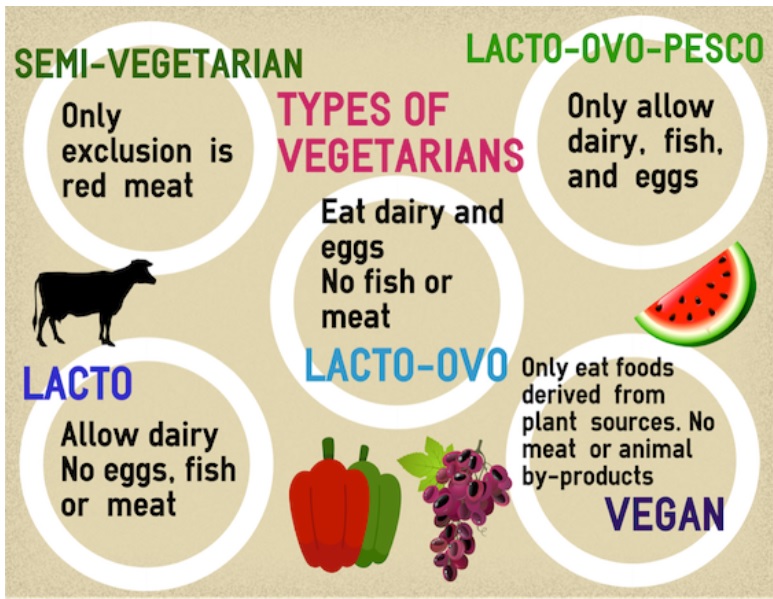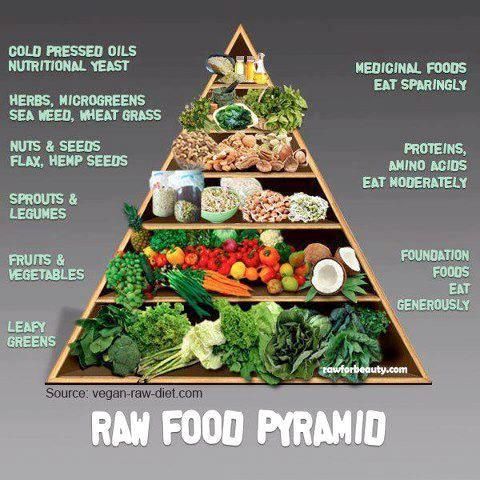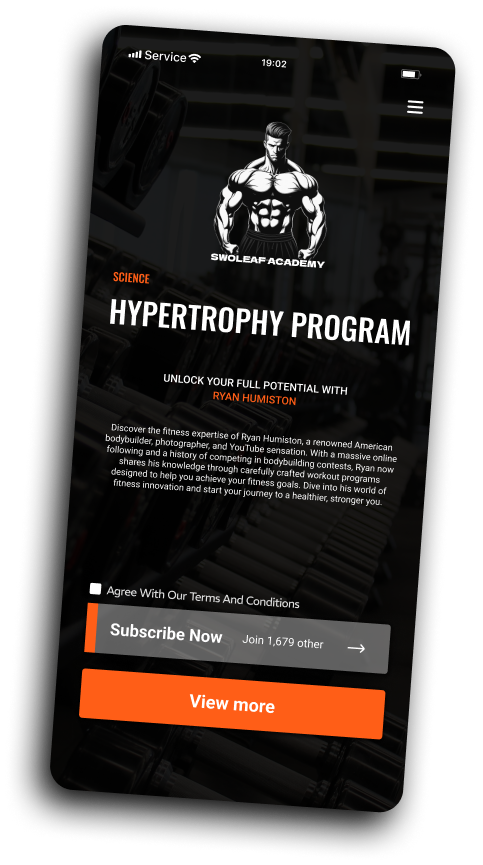Vegetarianism is a dietary and lifestyle choice that involves abstaining from the consumption of meat, fish, and poultry. It is a philosophy and set of principles that promote compassion towards animals, environmental sustainability, and personal well-being. Throughout history, vegetarianism has been adopted by countless individuals for diverse reasons and its practice remains widespread across the globe even in modern times. The ethical considerations surrounding animal treatment from industry have prompted numerous individuals to adopt vegetarianism as a lifestyle choice, abstaining from the consumption of meat. They strongly believe that subjecting animals to unnecessary cruelty or suffering solely for human consumption is morally wrong.
In addition to ethical considerations, vegetarianism also addresses environmental and sustainability concerns. The livestock industry is a major contributor to deforestation, greenhouse gas emissions, and water pollution. By reducing or eliminating meat consumption, vegetarians aim to minimize their ecological footprint and contribute to a more sustainable planet. It is estimated that between 2-8% of the global population follows a vegetarian diet.

Plant-based product manufacturers have redirected their attention towards flexitarians who comprise 25 % of global consumers surpassing the combined number of individuals identified as vegan, vegetarian or pescatarian thus establishing flexitarians as the primary demographic of interest.
Vegetarianism goes beyond dietary preferences, shaping personal and social identity with influences on values, attitudes, and well-being. Different forms of vegetarianism exist, each with its variations and dietary restrictions. Here are some common types:
Lacto-ovo vegetarianism:
The most commonly practiced type of vegetarianism entails individuals excluding meat, fish and poultry from their dietary choices, while still incorporating dairy products and eggs into their consumption.
- Lacto-vegetarianism: Lacto-vegetarians exclude meat, fish, poultry, and eggs from their diet but include dairy products.
- Ovo-vegetarianism: Ovo-vegetarians abstain from consuming meat, fish, poultry and dairy products but they do incorporate eggs into their dietary choices.
- Veganism: Vegans follow a strict plant-based diet that excludes all animal products, including meat, fish, poultry, eggs, dairy, and honey. Veganism extends beyond diet and encompasses a lifestyle that avoids using animal-derived products, such as leather, fur, and cosmetics tested on animals.
- Flexitarian or semi-vegetarian: Flexitarians primarily follow a vegetarian diet but occasionally consume meat, fish, or poultry in small quantities. They aim to reduce their overall meat consumption while primarily focusing on plant-based foods.

Flexitarianism: Embracing A Flexible Approach To Plant-based Eating
The term “flexitarian” was coined by merging “flexible” and “vegetarian”, reflecting the adaptable essence of this dietary approach. Flexitarianism is commonly viewed as a gradual progression for individuals aiming to embrace a more plant–based diet while encountering difficulties in completely eliminating animal products from their meals. It offers a middle ground that allows people to make conscious choices about their food while still enjoying the occasional meat-based dish.
The focus of a flexitarian diet is on plant-based foods, including fruits, vegetables, whole grains, legumes, nuts, and seeds. These food items are the cornerstone of meals offering a diverse array of vital nutrients, fiber and antioxidants that are essential for sustaining a nourishing and well–rounded diet. Flexitarians may also incorporate vegetarian alternatives, such as plant-based meat substitutes or dairy alternatives, into their meals.
The decision to incorporate limited quantities of animal products into a flexitarian diet is a matter of personal choice and can differ among individuals. Some flexitarians may choose to have a meatless day or two each week, while others may opt for a more relaxed approach and include occasional servings of meat, fish, or poultry. The frequency and quantity of animal products consumed can be tailored to individual preferences and dietary needs.
By reducing meat consumption, flexitarians lower their environmental impact, as the production of meat is resource-intensive and contributes to greenhouse gas emissions. Embracing a diet that emphasizes plants can contribute to better health outcomes by encountering higher consumption of nutrient–dense foods and reducing the intake of potentially harmful saturated fats.
Pescetarianism: Incorporating Seafood Into A Plant-based Diet
Pescetarians primarily follow a plant-based eating pattern but incorporate seafood as a source of animal protein and other essential nutrients. This dietary approach offers individuals the benefits of a vegetarian lifestyle while enjoying the nutritional advantages associated with seafood consumption.
The term “pescetarian” is derived from the Italian word “pesce”, which translates to “fish”, indicating the emphasis on fish consumption within this dietary choice.
Pescertians refrain from consuming meat and poultry but they include a variety of fish, shellfish and other aquatic animals in their dietary choices. They rely on plant-based foods, such as fruits, vegetables, grains, legumes, nuts, and seeds, as the foundation of their meals, and complement their diet with seafood options.
Fish and seafood are rich in high-quality protein and contain essential amino acids that are beneficial for muscle growth, repair, and overall body function. They are also a natural source of long-chain omega-3 fatty acids, such as EPA and DHA, which are known for their potential cardiovascular and brain health benefits.
By including seafood in their plant-based diet, pescatarians can supplement their intake of essential nutrients like iodine, selenium, zinc, vitamin D and vitamin B 12 which are typically more abundant in animal-based foods. These essential nutrients have significant roles in diverse bodily functions such as bolstering the immune system regulating thyroid function and preserving nerve cell health.
Raw Food Vegetarianism: Embracing a Diet of Uncooked and Unprocessed Foods
Raw food vegetarianism referred to as raw veganism or raw foodism, is a dietary practice that prioritizes the consumption of uncooked and unprocessed plant-derived foods. The underlying philosophy of raw food vegetarianism stems from the notion that raw, living foods retain their inherent enzymes, vitamins and minerals which are believed to contribute to enhanced well-being and vitality. Raw foodists argue that cooking can destroy enzymes and alter the nutrient content of foods, making them less beneficial to the body. As a result, adherents of raw food vegetarianism primarily rely on a diet that consists of uncooked fruits, vegetables, nuts, seeds, sprouted grains and legumes.
In a raw food vegetarian diet, foods are typically consumed in their natural state or prepared using techniques such as juicing, blending, soaking, sprouting, or dehydrating at low temperatures (below 118°F or 48°C) to maintain their raw status. Raw foodists frequently promote the utilization of organic and locally obtained produce as well as the inclusion of premium ingredients in their dietary choices.
Raw food vegetarianism is thought to offer potential advantages including heightened energy levels, improved digestion, weight control, improved skin condition, enhanced mental focus, decreased risk of chronic illnesses and overall well-being. Nevertheless, it is vital to be mindful of meeting nutritional needs and being aware of the potential for nutrient deficiencies in raw food vegetarianism.

Plant-based Pre-workout Nutrition: Fueling Performance And Energy Levels
Plant-based pre-workout nutrition plays a vital role in fueling performance and providing the necessary energy levels for exercise. Regardless of whether you adhere to a vegetarian, vegan or flexitarian diet, there are numerous plant-based choices available to enhance your workout nutrition and optimize performance. Here are some key considerations for plant-based pre-workout nutrition:
- Carbohydrates: Ingesting a meal or snack rich in carbohydrates before a workout can supply the necessary energy for achieving optimal performance. Good plant-based carbohydrate sources include whole grains (such as quinoa, brown rice, and oats), fruits, starchy vegetables (like sweet potatoes), and legumes.
- Protein: Protein plays a vital role in muscle repair, recovery and growth and incorporating a moderate quantity of plant–based protein into your meal or snack can aid in supporting muscle function. Plant-based protein sources include legumes (such as lentils, chickpeas, and black beans), tofu, and tempeh, seitan, quinoa, and hemp seeds.
- Healthy Fats: While carbohydrates are the primary energy source, including some healthy fats in your pre-workout meal can provide sustained energy and promote satiety. Good plant-based fat sources include avocados, nuts, seeds (such as chia seeds and flaxseeds), and plant-based oils (like olive oil or coconut oil).
- Hydration: Sustaining proper hydration is crucial for achieving peak performance. Make sure to hydrate adequately before your workout by drinking water or consuming hydrating plant-based fluids, such as coconut water or fruit-infused water.
- Timing: Aim to consume a balanced meal or snack containing carbohydrates and protein approximately 1-3 hours before your workout. This timeframe allows for digestion and nutrient absorption without causing discomfort during exercise. If you have limited time, a smaller snack closer to your workout can still provide a boost of energy.
- Personalization: Every individual has unique dietary needs and preferences. Explore various plant-based foods and combinations through experimentation to discover the optimal choices that suit your individual preferences and needs. Consider foods that are easily digestible and do not cause discomfort during exercise.
- Supplements: Some plant-based athletes may choose to incorporate pre-workout supplements into their routine. They can include plant-based protein powders, BCAAs and natural energy boosters like green tea or guarana in your regimen but prioritize on high-quality supplements. It is also important to seek guidance from healthcare professionals or registered dieticians to ensure they meet your specific requirements.
Veggie Protein Power
Plant-based protein powders made from sources like peas, rice, hemp, or a blend of plant proteins can be a convenient option to supplement protein intake. They can be mixed with water or plant-based milk and consumed before or after workouts.
By including a variety of plant protein sources in your meals and snacks throughout the day you can ensure a sufficient intake of amino acids essential for muscle growth. Maintaining a well-rounded diet that incorporates nutrient-dense foods is vital for promoting overall health and optimizing performance.
Vegetarianism for Health: Weigh Control, Better Heart, Fewer Diseases
Adopting a vegetarian diet presents several advantages that can enhance heart health, lower the likelihood of chronic illnesses and facilitate effective weight management.
- Heart Health: Vegetarian diets, low in saturated fats and cholesterol, are associated with a reduced risk of heart disease due to their plant-based, fiber-rich nature.
- Reduced Risk of Chronic Diseases: Adopting a vegetarian diet is associated with a lower risk of chronic diseases, including type 2 diabetes, certain cancers, and hypertension, attributed to the abundance of fiber, antioxidants, phytochemicals, and nutrients in plant-based foods.
- Weight Management: Vegetarian diets can contribute to weight management because of the low calorie, saturated fat content, and high fiber that promotes feelings of fullness.
- Improved Digestive Health: Plant-based diets high in fiber support a healthy digestive system, preventing constipation, promoting regular bowel movements, and nurturing a diverse gut microbiome.
- Lower Environmental Impact: Adopting a vegetarian diet can have a substantial impact on fostering a sustainable future by mitigating the environmental consequences associated with animal agriculture. It also helps in the reduction of greenhouse gas emissions, the prevention of deforestation and the minimization of water pollution.
Common Challenges and Solutions for Vegetarianism
- Meeting Nutrient Needs: Incorporate a variety of plant-based protein sources, iron-rich foods, fortified foods or supplements for vitamin B 12, calcium sources and plant-based omega-3 fatty acids.
- Dining Out and Social Situations: Research vegetarian-friendly restaurants, suggest suitable venues for gatherings, communicate dietary needs, or offer to bring vegetarian dishes to social events.
- Dealing with Criticism or Lack of Understanding: Educate others about the benefits of vegetarianism, share personal experiences, and surround yourself with supportive individuals.
- Convenience and Accessibility: Plan and prepare meals in advance, carry vegetarian snacks, and have a list of vegetarian-friendly options available. Join vegetarian communities for tips and recommendations.
- Balancing Cost: Focus on affordable whole, unprocessed plant-based foods, buy in bulk, compare prices, and plan meals efficiently.
- Overcoming Food Boredom: Explore different cuisines, try new recipes and ingredients, and seek inspiration from cookbooks, websites, or cooking classes.
- Handling Cravings: Look for vegetarian alternatives or substitutes that provide similar flavors or textures to satisfy cravings.
Dispelling Vegetarianism Myths: Separating Fact from Fiction
Myths about vegetarianism include claims that vegetarians don’t get enough protein, lack essential nutrients, have limited variety and flavor in their diets, are weak and lack energy. Also, people think that vegetarian food is expensive, isn’t suitable for children or pregnant women, and is not environmentally friendly. In actuality, a properly planned vegetarian diet can fulfill protein and nutrient requirements provide a range of tasty meals, supply energy for physical activity, be budget-friendly and be appropriate for all life stages. Iron needs can be met through plant-based sources, and vegetarian diets contribute to environmental sustainability.
Success Stories: Inspiring Vegetarian Athletes and Bodybuilders
In the realm of sports and fitness, a common misconception suggests that vegetarian diets lack the essential protein and nutrients required to support athletic performance and develop well-built muscular physiques. However, a growing number of vegetarian athletes and bodybuilders are breaking down these stereotypes and proving that plant-based diets can indeed support remarkable achievements and physical prowess.
One such inspiring success story is that of professional tennis player Serena Williams. Despite facing doubts about her vegetarian diet, she has not only dominated the tennis court but also won numerous Grand Slam titles and Olympic gold medals. Williams credits her achievements not only to her intense training but also to the resilience and stamina she derives from her plant-based diet.
Another example is bodybuilder Nimai Delgado, who has sculpted an impressive physique without consuming meat or animal products. Delgado has won multiple bodybuilding competitions and is a living example of the incredible muscular development that can be achieved through plant-based nutrition.
These success stories extend beyond individual achievements to team sports as well. The Tennessee Titans football team, for instance, made headlines when several players adopted a plant-based diet during the 2019 season. Despite initial skepticism, the team experienced improved performance, recovery, and overall health. Their success debunked the notion that meat is necessary for athletic success and showcased the benefits of plant-powered nutrition.
Some Common Questions On Vegetarianism
Is a vegetarian diet safe for children and pregnant women?
A well-planned vegetarian diet can be safe for children and pregnant women, but attention to nutrient needs, especially iron, zinc, calcium, vitamin B12, and omega-3 fatty acids, is important.
Are there any cultural or religious considerations associated with vegetarianism?
Cultural and religious considerations can play a role in vegetarianism, as some cultures or religions promote or require vegetarian or plant-based eating for various reasons.
How can individuals transition to a vegetarian diet and what resources are accessible to aid in the process?
Transitioning to a vegetarian diet can be done gradually by incorporating more plant-based meals, seeking recipe inspiration, and utilizing online resources, cookbooks, and support from registered dietitians or vegetarian organizations.
Will being a vegetarian hinder my ability to build muscle and strength?
Being a vegetarian does not inherently hinder muscle and strength building. Adequate protein intake from plant-based sources, along with proper training and recovery, can support muscle growth.
How can I ensure proper recovery and muscle repair without animal-based protein sources?
Proper recovery and muscle repair on a vegetarian diet can be achieved by consuming a variety of plant-based protein sources, including legumes, tofu, tempeh, seitan, quinoa, and soy products.
Are there any vegetarian supplements that can support exercise and weight management goals?
Supplements specifically designed for vegetarians such as plant-based protein powders, B12, iron and omega-3 fatty acids can aid in achieving exercise and weight management objectives when nutritional requirements are not fully met through dietary sources alone.
Will I still have enough energy for high-intensity workouts on a vegetarian diet?
With proper meal planning and attention to nutrient needs, individuals on a vegetarian diet can have sufficient energy for high-intensity workouts. Adequate calorie intake and nutrient timing around exercise are key factors to consider.









